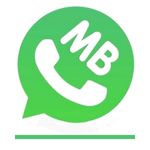Closing the Knowledge Gap: Online Path to Educational Equity

Education is important. It helps us learn and grow. But not everyone has the same chance to learn. Some people have more access to education. This is a problem. It creates a gap in knowledge. This is called the knowledge gap.
What is the Knowledge Gap?
The knowledge gap is the difference in what people know. Some people know more because they have better access to education. Others know less because their access is limited. This gap can affect jobs and life chances.
Why Does Educational Equity Matter?
Educational equity means everyone has the same chance to learn. It is important because it gives everyone an equal start. When everyone can learn, they can have better lives. They can get better jobs. They can help their communities.
How Online Learning Helps
Online learning, like what’s offered through platforms such as ZAIA, plays a powerful role in closing the knowledge gap. It makes education more accessible to everyone, no matter where they are. With just an internet connection, learners can tap into quality resources and gain new skills from anywhere in the world.
Access For Everyone
Online learning is open to all. It does not matter where you live. You can learn. This is very important for people in remote areas. They may not have schools nearby. Online learning gives them a chance to learn.
Flexible Learning
Online learning is flexible. You can learn at any time. This is good for people who work. They can learn after work. They can learn on weekends. Online learning fits their schedule.
Wide Range Of Subjects
Online learning offers many subjects. You can learn about science, math, and more. You can choose what you want to learn. This helps people follow their interests.
Quality Resources
Online learning provides quality resources such as books, videos, and articles. Many of these resources are free, while some may cost money, but overall they make education more affordable. A great example is All You Can Books, which offers unlimited access to over 200,000 ebooks, audiobooks, podcasts, and language learning courses. With so many materials available in one place, learners can expand their knowledge and skills without spending too much, making quality education accessible to everyone.
Challenges of Online Learning
Online learning is not perfect. It has challenges. Some people may not have internet access. Others may not have computers or tablets. This can limit their ability to learn online.
Internet Access
Not everyone has internet access. This is a big challenge. Without the internet, online learning is impossible. Communities need to work on providing internet access for all.
Technology Devices
Some people do not have computers or tablets. This makes online learning hard. Schools and communities can help. They can provide devices to those who need them.
Digital Skills
Online learning requires digital skills. Some people may not know how to use computers. They need training. They need support. Helping people learn digital skills is important.
Support from Platforms
Some platforms are helping. They offer online courses and resources. They work to make learning accessible. Zendy is one example. It provides learning materials to many people.
Community Involvement
Communities play a big role. They can support online learning. They can provide internet access. They can offer spaces for learning. They can help people learn digital skills.
Conclusion
Educational equity is important. It starts with online learning. Online learning helps close the knowledge gap. It gives more people access to education. There are challenges. But with support, they can be overcome.
Everyone deserves a chance to learn. Online learning is a step forward. It is a tool. A tool to bring educational equity to all.
